Premium Only Content
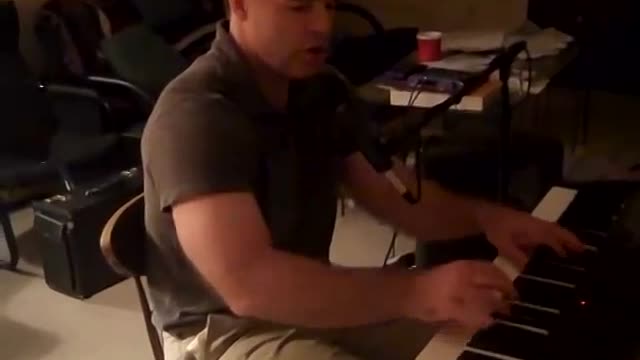
Jazz Standards Summertime Porgy And Bess George Gershwin vocals with keyboard
Jazz Standards Summertime Porgy And Bess George Gershwin vocals with keyboard
"Summertime" is an aria composed in 1934 by George Gershwin for the 1935 opera Porgy and Bess. The lyrics are by DuBose Heyward, the author of the novel Porgy on which the opera was based, although the song is also co-credited to Ira Gershwin by ASCAP.[1] This is my piano and vocal interpretation. The song has been a popular jazz standard and show tune since its creation.
The song soon became a popular and much recorded jazz standard, described as "without doubt ... one of the finest songs the composer ever wrote ... Gershwin's highly evocative writing brilliantly mixes elements of jazz and the song styles of blacks in the southeast United States from the early twentieth century".[2] Composer and lyricist Stephen Sondheim has characterized Heyward's lyrics for "Summertime" and "My Man's Gone Now" as "the best lyrics in the musical theater".[3] The song is recognized as one of the most covered songs in the history of recorded music, with more than 33,000 covers by groups and solo performers.[4]
Contents [hide]
1 Porgy and Bess
2 Analysis 2.1 Lyrics
2.2 Music
3 Other versions
4 See also
5 References
6 External links
Porgy and Bess[edit]
Gershwin began composing the song in December 1933, attempting to create his own spiritual in the style of the African American folk music of the period.[5][6] Gershwin had completed setting DuBose Heyward's poem to music by February 1934, and spent the next 20 months completing and orchestrating the score of the opera.[7]
The song is sung several times throughout Porgy and Bess. Its lyrics are the first words heard in act 1 of the opera, following the communal "wa-do-wa". It is sung by Clara as a lullaby. The song theme is reprised soon after as counterpoint to the craps game scene, in act 2 in a reprise by Clara, and in act 3 by Bess, singing to Clara's now-orphaned baby after both its parents died in the storm. It was recorded for the first time by Abbie Mitchell on July 19, 1935, with George Gershwin playing the piano and conducting the orchestra (on: George Gershwin Conducts Excerpts from Porgy & Bess, Mark 56 667).
The 1959 movie version of the musical featured Loulie Jean Norman singing the song. That rendition finished at #52 in AFI's 100 Years...100 Songs survey of top tunes in American cinema.
Analysis[edit]
Lyrics[edit]
Heyward’s inspiration for the lyrics was the southern folk spiritual-lullaby All My Trials, of which he had Clara sing a snippet in his play Porgy.[8][9] The lyrics have been highly praised by Stephen Sondheim. Writing of the opening line, he says
That "and" is worth a great deal of attention. I would write "Summertime when" but that "and" sets up a tone, a whole poetic tone, not to mention a whole kind of diction that is going to be used in the play; an informal, uneducated diction and a stream of consciousness, as in many of the songs like "My Man's Gone Now". It's the exact right word, and that word is worth its weight in gold. "Summertime when the livin' is easy" is a boring line compared to "Summertime and". The choices of "ands" [and] "buts" become almost traumatic as you are writing a lyric – or should, anyway – because each one weighs so much.[10]
Music[edit]
Musicologist K. J. McElrath wrote of the song:[7]
Gershwin was remarkably successful in his intent to have this sound like a folk song. This is reinforced by his extensive use of the pentatonic scale (C–D–E–G–A) in the context of the A minor tonality and a slow-moving harmonic progression that suggests a “blues”. Because of these factors, this tune has been a favorite of jazz performers for decades and can be done in a variety of tempos and styles.
While in his own description, Gershwin did not use any previously composed spirituals in his opera, Summertime is often considered an adaptation of the African American spiritual Sometimes I Feel Like a Motherless Child, which ended the play version of Porgy.[9][11][12] Alternatively, the song has been proposed as an amalgamation of that spiritual and the Ukrainian Yiddish lullaby Pipi-pipipee.[13] The Ukrainian-Canadian composer and singer Alexis Kochan has suggested that some part of Gershwin's inspiration may have come from having heard the Ukrainian lullaby, Oi Khodyt Son Kolo Vikon (A Dream Passes By The Windows) at a New York City performance by Alexander Koshetz's Ukrainian National Chorus in 1929 (or 1926).[14]
-
 1:34
1:34
Pianokris
4 years agoRudolf the Red Nosed Reindeer keyboard with vocals
166 -
 2:21
2:21
Pianokris
4 years ago $0.01 earnedNice Work If You Can Get It Piano and Vocals George Gershwin
52 -
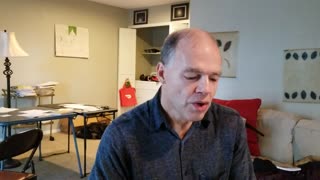 1:20
1:20
Pianokris
4 years ago $0.28 earnedWhite Christmas keyboard and vocals
162 -
 4:33
4:33
Pianokris
4 years agoOriginal music - "Sidetracked" Keyboard and vocals
47 -
 4:13
4:13
Pianokris
4 years ago $0.01 earned“Shooting Star“ Bad Company Keyboard And Vocals
46 -
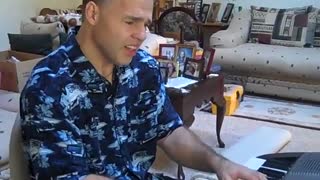 5:27
5:27
Pianokris
4 years agoFreebird Lynyrd Skynyrd Classic Rock Keyboard and Vocals
146 -
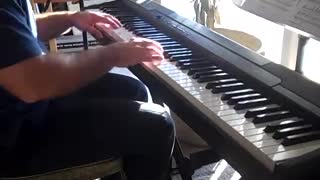 3:02
3:02
Pianokris
4 years ago $0.02 earned“Lodi“ Creedence Clearwater Revival Keyboard And Vocals
218 -
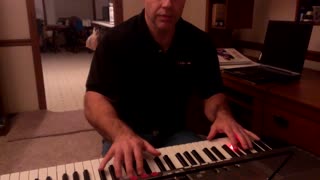 4:19
4:19
Pianokris
4 years ago $0.01 earnedRocket Man Elton John Keyboard and Vocals
492 -
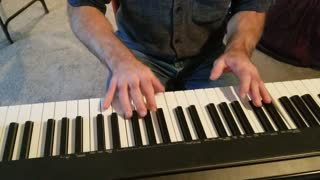 1:34
1:34
Pianokris
4 years agoRudolf the red nosed reindeer keyboard and vocals
42 -
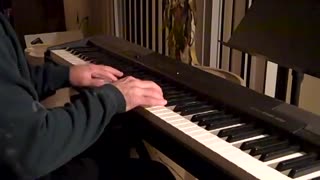 3:06
3:06
Pianokris
4 years ago $0.03 earnedTony Bennett "Mack The Knife" Keyboard And Vocals
1.02K